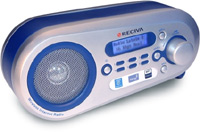T-Mobile have launched the Ear Phones music service, hoping to have 250,000 full length music tracks available for mobile phone download and play by Christmas.
The service hopes to capture the imagination of those for whom even iTunes is too slow, who want to download music and listen to it immediately when they are out and about.
T-Mobile have outlined their vision of the future in a press release that was written by someone who objects to sentences longer than five words – although there are no full tracks on the service yet, phone owners can download and play 90 to 120 second samples of 500 tracks, with full tracks being added soon.
The service will really need 3G coverage to be usable – a short sample track takes 2 minutes to download, which is a slightly longer time span than most youths own a particular model of phone. 3G networks will take this down to about 30 seconds – roughly the amount of time it takes to disrespect someone’s trainers at the bus stop.
The service is backed by Sony and Warner music, and Amy Winehouse is even scheduled to release her next single on Ear Phones.
T-Mobile have five new compatible handsets for the service launch, and are planning on 12 by Christmas. They “conservatively estimate” that they will have sold over 1 million Ear Phones by June next year, 4 million by the end of 2006.
No estimate on the number of full music tracks paid for and downloaded, I note. I suppose we’ll just have to do a little follow up on that in a little while.
The key stumbling block here is that people will be lumbered with a piece of content that is stuck on their phone and is not transferable to another device – home, car, personal stereo – the Open Mobile Alliance 1.0 DRM will keep it locked up and immovable.
The service is in danger of dying out after the novelty has worn off and customers realise they still have to carry two music players – and worse still, keep buying content over and over.
T-Mobile
 I would listen to a lot more internet radio if I didn’t have to be in the vicinity of my computer to do so. Internet radio stations are great, but just not convenient around the house for most people – not being able to carry a small radio from room to room to listen to programmes often means that a lot of people just don’t bother listening to the huge range of programming out there.
I would listen to a lot more internet radio if I didn’t have to be in the vicinity of my computer to do so. Internet radio stations are great, but just not convenient around the house for most people – not being able to carry a small radio from room to room to listen to programmes often means that a lot of people just don’t bother listening to the huge range of programming out there.